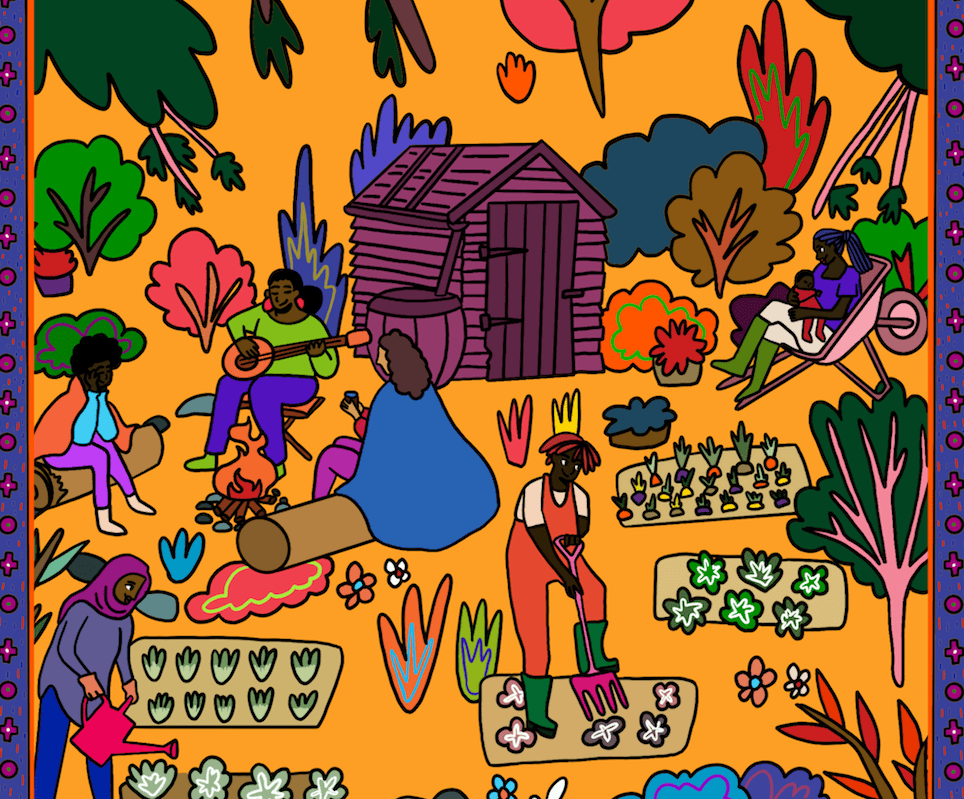By Martin Wright
Copyright positive

What they also have in common is that most are far from the typical image of the (middle-class, usually white), environmental activist. Volkova, for example, is a single mother in a war zone; Calliste a black woman from inner London – a demographic rarely reached by mainstream green campaigns. They certainly hadn’t reached her. What had, though, was the power of a garden to heal and restore: burnt out from her work as a sexual health advisor specialising in the black community, she found respite in the May Project – a community interest company (CIC) based in Morden, south London, which helped local people engage with growing their own food.
The simple act of getting her hands into the soil revived her, but also led her to question the place – or lack of it – of BPOC people in agriculture in the UK. “I was getting more enraged about land inequality – how 50% of the land is owned by 1% of the population”, with people of non-white heritage virtually invisible on the land. And she found she wasn’t alone in her frustration, others from her community were similarly stirred. “We were sitting under an apple tree [in the May Project], talking and dreaming …”.
In LION’s own growing space, they can produce food and teach everything from making compost to mixing cement
Dreams turned into action with a gathering at the Oxford Real Farming Conference in January 2020, when “around 50 black people and people of colour, some with experience of growing food, some just really keen” came together to discuss possibilities. Covid’s enforced time for reflection culminated in Calliste and others taking the plunge to set up LION as a CIC – with the aim both of engaging the BPOC community in practical agriculture, and addressing some of the root causes of exclusion from the land, taking in everything from discussions on reparations for colonial injustice, to addressing the exploitation of migrant workers in British agriculture today.
The timing was fortuitous, says Calliste, with the rise of Black Lives Matter focusing attention on racial justice issues, and so spurring a flow of funds to BPOC causes. It helped secure LION its own growing space: the Dandelion Garden at Glengall Wharf in Peckham, south London. Here, they can produce food, teach everything from compost making to mixing cement – and provide a space for conversations that might not happen otherwise. “We’ve had people who were deeply affected by what’s happening in Kashmir or Gaza”, says Calliste, but who found it very hard to talk about. But talk flows more easily when engaged in activity: “People say, ‘I really needed that [chance to talk] – and now I’ve learned how to point bricks too!”
Down in the Dandelion Garden, LION hosts ‘nature immersion’ events, connects BPOC growers from across the city, publishes resource packs and reports on racism in agriculture, and stages seasonal gatherings. The long-term aim, says Calliste, is to buy their own land, somewhere near London. Easier said than done, with land prices as they are – but with her determination, you wouldn’t bet against it. So, watch this (green) space.
Martin Wright is a director of Positive News
Illustration: blkmoodyboi



